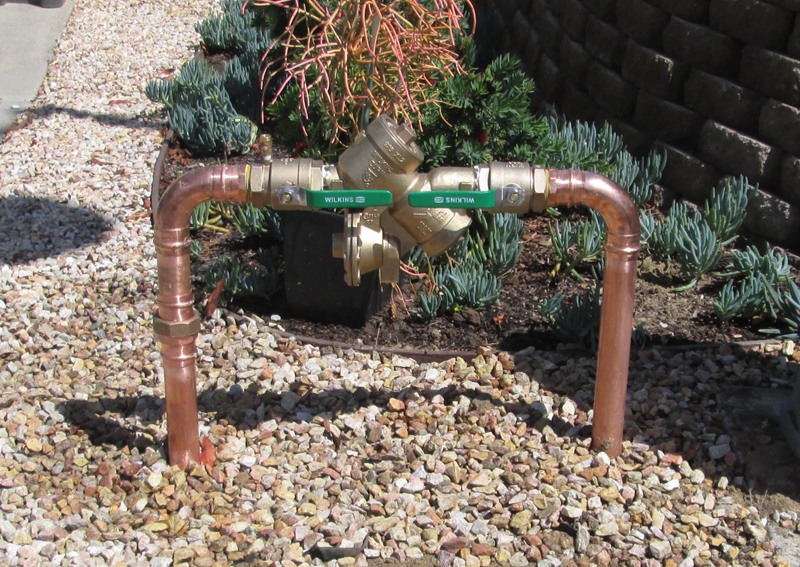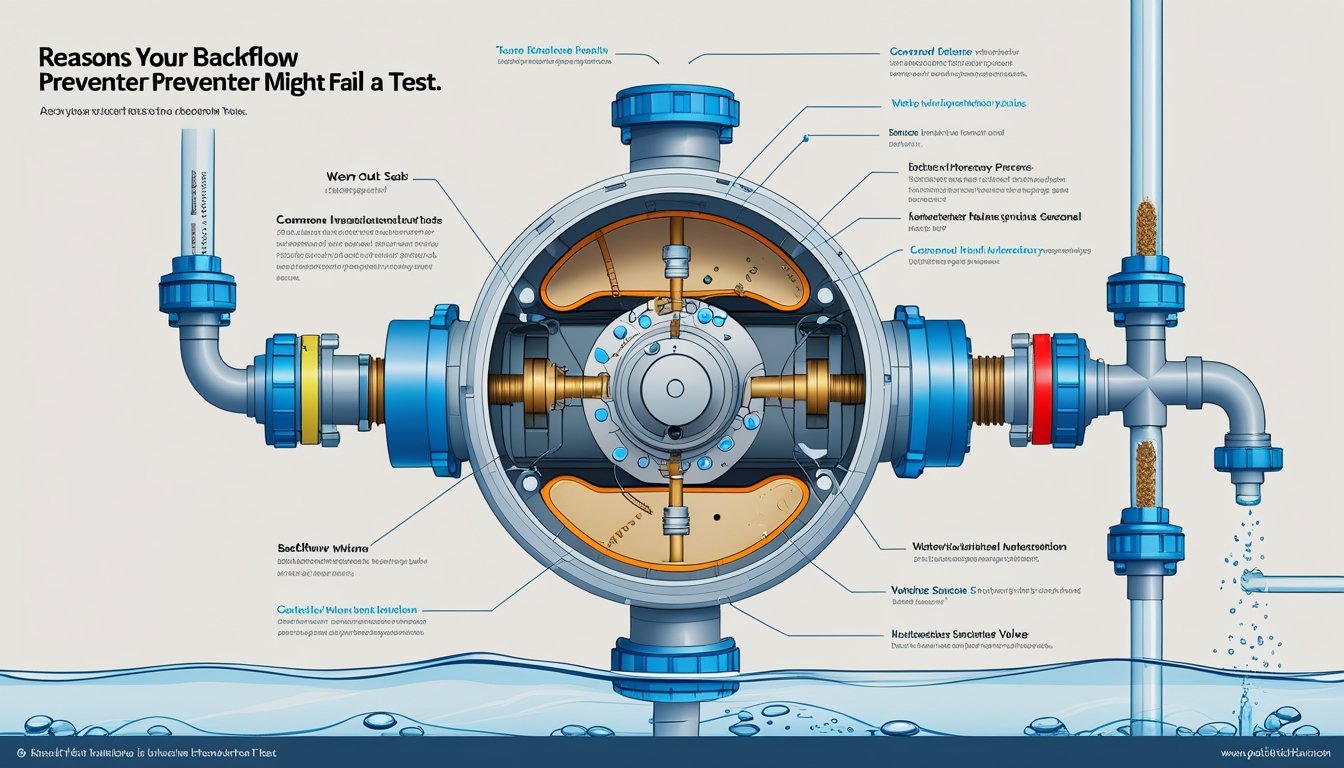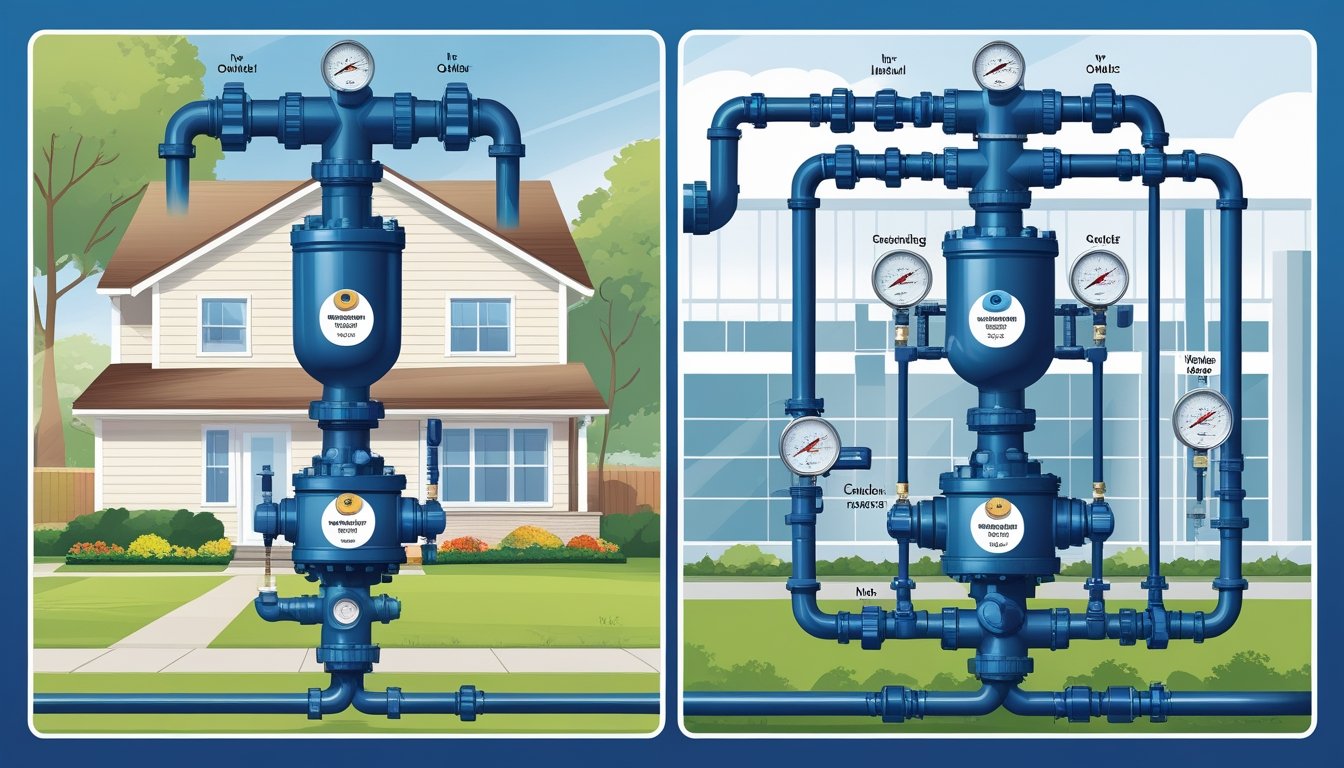When you want to keep your home's water supply safe, professional backflow services offer clear advantages over doing it yourself. Hiring certified experts means they test and repair your backflow preventer accurately to meet local rules, reducing the risk of contaminated water flowing into your clean supply.
Mistakes in testing or repairs can lead to serious health issues or costly fixes later. Doing it yourself might seem cheaper, but backflow systems are complicated and require special tools and skills.
Professionals use the right equipment and handle paperwork and compliance. This makes the process easier and less stressful for you.
By choosing experts, you get quick service during emergencies and proper installation. They help protect your system from damage or tampering.
Understanding Backflow and Its Risks
Backflow happens when water flows backward into your clean water supply. This can bring harmful substances into your drinking water and plumbing system.
Knowing what backflow is, why it’s dangerous, and what causes it helps you protect your home or business.
What Is Backflow?
Backflow is when water flows in the opposite direction from its normal course. Instead of clean water going to your taps, contaminated water can move back into the water lines.
A sudden drop in pressure, like during a water main break or heavy water use, can cause this. Backflow can introduce harmful pollutants into your drinking water.
Backflow preventers stop water from reversing and keep your water clean and safe. Regular testing and maintenance keep these devices working properly.
Potential Hazards of Backflow
When backflow occurs, contaminants like dirt, chemicals, and bacteria can enter your clean water. This poses health risks such as illness from drinking or using unsafe water.
The risks increase if you have irrigation systems, swimming pools, or hose connections that link clean water with possible pollutants. Backflow can also damage your plumbing system by causing corrosion or leaks.
Untested or broken backflow preventers cannot protect you effectively. Professional inspections and repairs help you avoid costly problems and keep everyone safe.
Common Causes of Backflow
Backflow often happens due to:
- Backpressure: Pressure in a connected system becomes higher than the water supply, pushing water backward.
- Backsiphonage: A sudden drop in water pressure, like during firefighting or a pipe break, pulls water back.
- Cross-connections: Clean water pipes connect to systems with contaminated water, risking mixing.
These causes often involve plumbing setups connected to outdoor hoses, irrigation systems, or boilers. Knowing these causes helps you spot where you need a backflow preventer and why it must be maintained.
Key Advantages of Professional Backflow Services
Choosing a professional backflow service means you get trained experts who follow strict rules and use the right tools. They inspect your system carefully, spot problems early, and fix issues properly.
This keeps your water safe and your system working well.
Expertise and Certification
Certified backflow technicians have the right knowledge and training. These experts understand local laws and regulations about backflow prevention.
They make sure your system meets all safety rules, so you avoid fines and risks. Technicians keep up with changes in codes and methods.
Their certification shows they passed tests to prove they can handle the job well. DIY approaches can't match this level of skill and experience.
Comprehensive Inspection Techniques
Professionals use detailed inspection methods to check every part of your backflow preventer. They test how well your device stops contaminated water from flowing backward into your clean water supply.
This testing is more than just a visual check; it involves measuring pressure and flow using approved procedures. Finding small problems early helps avoid big repairs or health risks later.
Certified inspectors also create detailed reports. These documents prove compliance with local water authorities and give you clear information on what needs repair or replacement.
Proper Tools and Equipment
You need special tools to test and maintain backflow devices correctly. Professional testers bring calibrated instruments designed for this job.
Trying to do it yourself without the right equipment can lead to inaccurate results or missed issues. Professionals use tools approved by local codes, ensuring your test results will be accepted by your water provider.
They can also fix or replace parts immediately if they find a problem, saving you time and hassle. This service keeps your water safe and your system in good shape.
Drawbacks and Limitations of DIY Backflow Solutions
Trying to handle backflow prevention yourself can seem like a good way to save money. However, important risks are involved.
Mistakes or missed steps can cause problems that cost more time and money later. You might face issues with the proper setup, testing, and long-term safety of your water supply.
Lack of Technical Knowledge
Installing or maintaining a backflow preventer is not as simple as it looks. These systems require detailed knowledge of plumbing codes, water flow principles, and specific device functions.
Without this technical expertise, you may install the device wrong or not detect hidden issues. Professionals have training and experience to solve problems you might not see.
They know how to size pipes correctly and position devices to work as they should. DIY attempts often miss these details, which can cause backflow or system failure later.
Potential for Costly Mistakes
Errors during installation or repair can lead to serious trouble. Incorrect pipe sizing, loose connections, or poor support for devices may cause leaks or system damage.
These mistakes might not be evident right away but can result in costly emergency repairs. If your backflow preventer fails because of poor DIY work, you could also face fines for not meeting local water regulations.
Certified professionals ensure your system passes all compliance checks, saving you from future penalties.
Inadequate Testing Procedures
Annual testing is required to keep your backflow device working properly. DIY testing usually lacks the right tools and training to spot every problem.
Certified testers use specialized gauges to measure pressure and flow accurately. Without proper testing, a faulty backflow preventer might stay undetected, putting your drinking water at risk.
Professionals also handle all documentation and report submissions, keeping you worry-free on compliance and safety.
Importance of Compliance and Legal Requirements
Staying compliant with backflow regulations is essential to avoid fines and protect your water supply. Knowing the rules and keeping proper records help you meet legal standards.
Understanding Local Regulations
You need to follow specific backflow testing rules set by your city or water district. These rules often require annual testing, especially for commercial and residential properties.
Failing to meet these can lead to fines or even water shutoffs. Most areas require only certified professionals to perform backflow testing.
This ensures the work meets safety standards. You also need to repair or replace any failing devices promptly to stay within the law.
By knowing and following your local laws, you protect your water supply from contamination and avoid legal trouble.
Certification and Record Keeping
Certified testers provide the official documents your water authority needs to prove compliance. These reports are usually required every year and must be submitted on time.
Keeping copies of your testing, repair, and maintenance records helps you track your backflow system’s status. It also protects you if a dispute arises or if you need to show evidence during inspections.
Professional services handle all paperwork for you, filing reports directly with local agencies. This reduces your workload and ensures you don’t miss any deadlines that could lead to penalties.
Comparing Long-Term Costs and Value
When you decide between professional backflow services and doing it yourself, think about how costs add up over time. You want to avoid expensive repairs and make sure your coverage protects you if something goes wrong.
Preventing Expensive Repairs
Hiring a professional helps stop small problems from turning into costly repairs. Experts check your backflow preventer thoroughly, finding leaks or wear that DIY fixes might miss.
Fixing these issues early saves you money since backflow leaks can lead to property damage or water contamination. Professionals use the right parts and follow local codes, which reduces the chance of repeat problems.
Trying to repair or install your own backflow device risks mistakes that might cause long-term damage. These damages can cost hundreds or even thousands of dollars, much more than professional repair fees.
Insurance and Liability Coverage
Using professional backflow services can protect you with insurance and warranties. If a problem arises after a repair or installation, professionals often guarantee their work.
This means you won’t pay again for the same issue during the warranty period. Mistakes in a DIY job might void your homeowner’s insurance.
If backflow causes water damage or contamination, your insurance might refuse to cover the cost if you did not use a licensed plumber.
Professional services help you stay compliant with local laws, protecting you from fines or penalties. Their certificates and reports prove your system is working correctly, which matters if you sell your property or have inspections.
Ensuring Water Safety and Health
Keeping your water safe means stopping harmful substances from getting into your drinking supply. Using professional backflow services helps protect you, your family, and your community.
Protecting Family and Community
When backflow happens, dirty water can flow back into your clean water supply. This can bring germs and chemicals that make you and your family sick.
Professionals use the right tools and tests to find any risks early. They also follow local rules to stop contamination before it spreads.
A professional backflow service checks your system thoroughly and fixes any problems right away. This protects your home, your neighbors, and public water systems.
When trusted experts handle testing and repairs, you reduce health risks for everyone in your area.
Guarantees and Warranties
When you hire a pro, you get more than just service—you get peace of mind. Many professional companies back their work with warranties or guarantees.
If something goes wrong after their service, they’ll come back and fix it at no extra cost. Certified technicians also submit your test reports to the correct water authorities.
This helps you avoid fines and stay fully compliant with local laws. With DIY work, you often miss these important steps, raising your risk of penalties or water problems later.
Convenience and Peace of Mind
When you hire professional backflow services, you get convenience that’s hard to match. Certified technicians handle everything, from scheduling tests to filing reports with local water authorities.
You don’t have to worry about paperwork or missing deadlines. Professionals test your backflow preventer quickly and efficiently.
If there’s a problem, they explain it clearly and offer solutions. This saves you time and stress compared to figuring it out yourself.
Using experts also means your system stays compliant with all regulations. This helps avoid fines and keeps your water safe.
You gain peace of mind knowing your family or business is protected from contamination risks.
Here’s a quick look at what professional services provide:
ServiceWhat You GetWhy It Matters Annual TestingFast, hassle-free testing and reportingEnsures equipment worksRepairsCode-compliant fixes if your system failsStops leaks, keeps you legalInstallationsProper setup for any property typePrevents future problemsEmergency HelpAfter-hours service for urgent issuesLimits damage risks
Choosing pros means you don’t have to worry about errors from DIY attempts. You get reliable, trusted care that protects your water supply and makes your life easier.
When DIY Backflow Maintenance May Be Appropriate
You might choose to do some backflow maintenance yourself if you have basic plumbing skills and the right tools. Tasks like cleaning debris around the backflow preventer or checking for visible leaks can be manageable for homeowners.
If your backflow device is new and you received clear instructions from a professional, you might handle simple routine checks on your own. For example, keeping your backflow preventer free of dirt and debris helps it work well between professional tests.
Here are some simple things you can do yourself:
- Look for obvious leaks or damage
- Keep the area around the device clean and dry
- Make sure no parts are loose or broken
Testing and repairs usually require special equipment and training. Professionals make sure your system works properly and meets local rules.
If you notice anything unusual or receive a test notice, call a certified professional. They know how to spot problems early and keep your water safe.
Frequently Asked Questions
Professional backflow services ensure correct installation, testing, and maintenance. This helps you avoid costly mistakes and stay compliant with local rules.
What are the advantages of hiring a professional for backflow prevention installation?
A professional installs your backflow preventer properly to meet local codes. This prevents leaks, wrong pipe sizing, and position errors that often happen with DIY attempts.
They ensure the device works correctly from the start. This protects your water supply and saves you time and headaches later.
Can a homeowner legally install their own backflow preventer?
In most areas, you must hire a licensed or certified professional to install a backflow preventer. Local water authorities usually require official permits and inspections.
Doing it yourself might not meet legal requirements. This can lead to fines or failed inspections.
How often should professional backflow testing and maintenance be done?
You should have a professional test your backflow preventer at least once every year. Regular checks help catch problems early and keep your water safe.
Some areas have specific testing schedules. Follow your local water district’s rules.
Why is it important to have a certified technician for backflow services?
Certified technicians understand backflow systems and local regulations. They use the right tools and follow exact procedures to keep your water safe.
Certification proves they have the training needed to handle your system properly. This reduces the risk of contamination.
What could go wrong if I try to handle backflow issues on my own?
If you try to fix or install a backflow device without proper training, you risk improper installation or repair. This can cause leaks, contamination, or system failure.
Mistakes can lead to water safety issues, code violations, and expensive repairs.
Are there long-term cost savings in using professional backflow services?
Yes, professionals help prevent damage and failures that could become expensive over time.
Proper installation and timely maintenance keep your system running smoothly.
They also help you avoid fines by making sure your system stays compliant with local laws.











